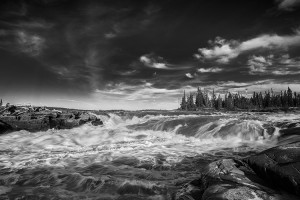Washing away your past
Washing away your memories
You’re rushing down too fast
You’re washing away your hopes and dreams
You’re washing away everything
You’re rushing down river faster than it flows
You’re rushing down the ocean
You’re rushing down, you’re rushing down, you’re rushing down
Too Fast
This poem, penned by my daughter Tiffany when she was 9 years old was among memorabilia I had kept in a folder to give to her. As she and her two brothers headed off to college (a sophomore and two freshman) they each received a memorabilia folder which included a diary of their lives from age 2 to age 13. I pride myself in having a good memory—but reading their diary brought me back to what I often marvel at when reading autobiographies—how do authors remember such detail? The answer is they are present.
Bob Loup once asked me in a class in which the topic was living in the present—but what if your present is painful-full of suffering. Why would you want to live in the “present” when hoping for a better future (or remembering a less challenging past) would seem much more reasonable?
Bob is friends with many well-known Holocaust survivors who have written their stories. One commonality you observe when reading Elie Wiesel’s Night, Ernie Michel’s Promises to Keep, Gerda Weissman Klien’s All but My Life and especially books on hgh Viktor Frankl’s Man’s Search for Meaning is the meticulous memory for detail these survivors have of life in the concentration camp. Dr. Frankl makes the point explicit—thinking about the future and recalling the past kept him alive. And still he was exquisitely present.
Nancy Sharp, a good friend and former Kabbalah student will read at our Kol Nidre service this coming Friday night from her book Both Sides. Now, a poignant memoir of the death of her husband Brett and her subsequent move to Colorado to fashion a new present—a new family with husband Steve. Nancy’s gift of being present transports us to the hospice bed and day Brett dies. She, as it is true for all of us, has already lived many lives.
Every Yom Kippur we come face to face with the angel of death. Perhaps the more relevant question to ask is not the “Who shall live and who shall die?” of the U-netaneh Tokef prayer but rather the question: “How alive am I?” How present am I?
It is a paradox that taking the time to remember, especially the act of “writing it down” activates being fully present. So tonight, amidst all my preparations for Yom Kippur and the fall semester of classes I begin the diary of now 2 year olds Eva and Isabel—so that memories are not washed away in a world where we rush too fast.










4 Comments
JACK WARTELL · September 13, 2013 at 9:36 am
Best and fond wishes to you and yours for the coming year….may these heavy rains wash away all your troubles and pains !
Laurie Brock · September 13, 2013 at 9:46 am
Lovely sentiment. Happy and healthy new year to all. And thoughts and prayers to all our neighboring friends who are dealing with the rains of Biblical proportions…
Judy · September 14, 2013 at 8:10 am
Nine years old–amazing!!
All those memories and milestones–what a beautiful gift for your children, just beautiful–a treasure of love they will cherish forever.
Jane E · September 15, 2013 at 12:33 pm
What an amazing insight for a 9 year old! Thanks for sharing and as always I love reading your blog. I hope and pray that the rains will stop and people of Colorado will begin to live in the present once again.